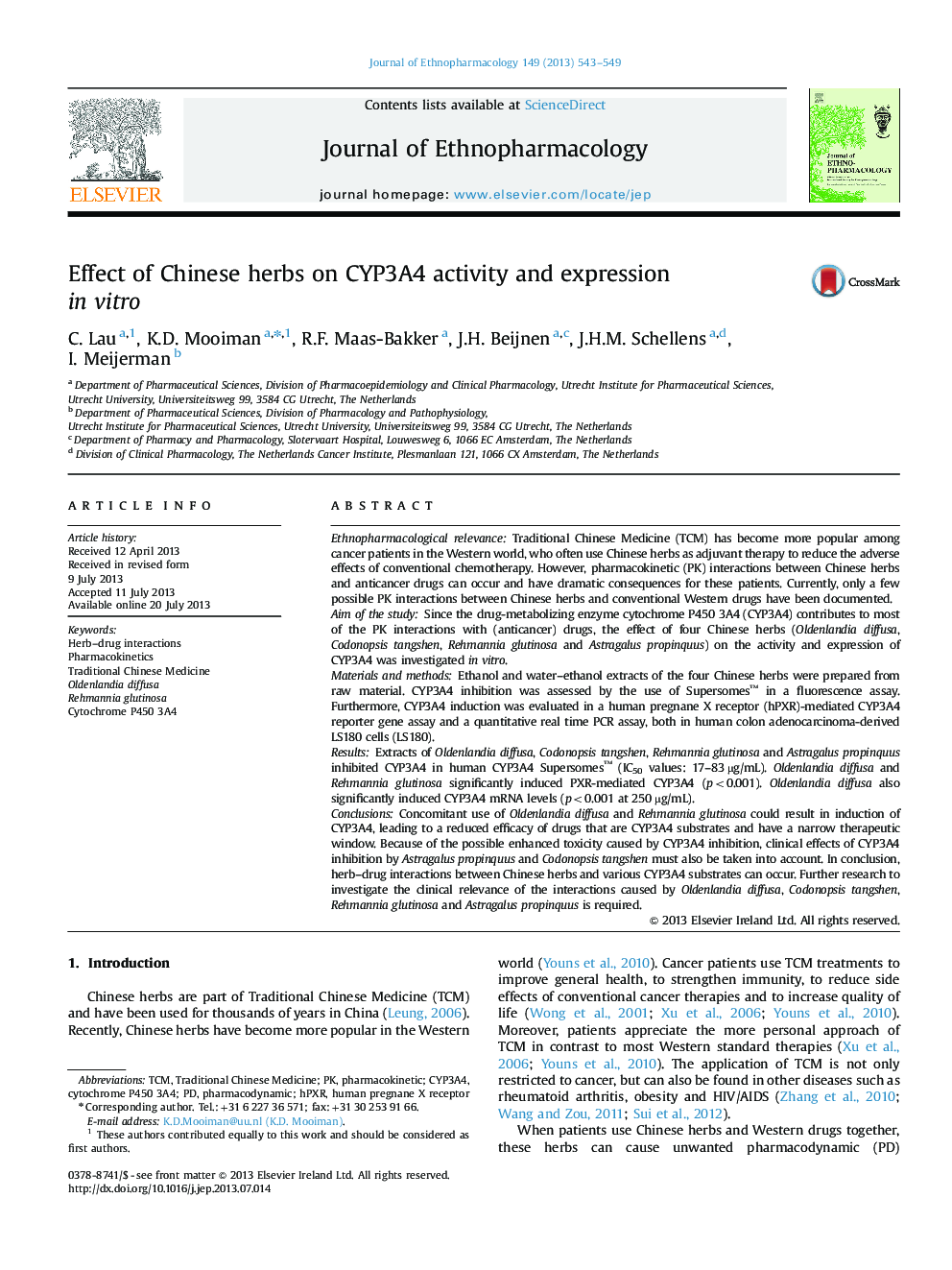| کد مقاله | کد نشریه | سال انتشار | مقاله انگلیسی | نسخه تمام متن |
|---|---|---|---|---|
| 5837222 | 1123961 | 2013 | 7 صفحه PDF | دانلود رایگان |

Ethnopharmacological relevanceTraditional Chinese Medicine (TCM) has become more popular among cancer patients in the Western world, who often use Chinese herbs as adjuvant therapy to reduce the adverse effects of conventional chemotherapy. However, pharmacokinetic (PK) interactions between Chinese herbs and anticancer drugs can occur and have dramatic consequences for these patients. Currently, only a few possible PK interactions between Chinese herbs and conventional Western drugs have been documented.Aim of the studySince the drug-metabolizing enzyme cytochrome P450 3A4 (CYP3A4) contributes to most of the PK interactions with (anticancer) drugs, the effect of four Chinese herbs (Oldenlandia diffusa, Codonopsis tangshen, Rehmannia glutinosa and Astragalus propinquus) on the activity and expression of CYP3A4 was investigated in vitro.Materials and methodsEthanol and water-ethanol extracts of the four Chinese herbs were prepared from raw material. CYP3A4 inhibition was assessed by the use of Supersomes⢠in a fluorescence assay. Furthermore, CYP3A4 induction was evaluated in a human pregnane X receptor (hPXR)-mediated CYP3A4 reporter gene assay and a quantitative real time PCR assay, both in human colon adenocarcinoma-derived LS180 cells (LS180).ResultsExtracts of Oldenlandia diffusa, Codonopsis tangshen, Rehmannia glutinosa and Astragalus propinquus inhibited CYP3A4 in human CYP3A4 Supersomes⢠(IC50 values: 17-83 µg/mL). Oldenlandia diffusa and Rehmannia glutinosa significantly induced PXR-mediated CYP3A4 (p<0.001). Oldenlandia diffusa also significantly induced CYP3A4 mRNA levels (p<0.001 at 250 µg/mL).ConclusionsConcomitant use of Oldenlandia diffusa and Rehmannia glutinosa could result in induction of CYP3A4, leading to a reduced efficacy of drugs that are CYP3A4 substrates and have a narrow therapeutic window. Because of the possible enhanced toxicity caused by CYP3A4 inhibition, clinical effects of CYP3A4 inhibition by Astragalus propinquus and Codonopsis tangshen must also be taken into account. In conclusion, herb-drug interactions between Chinese herbs and various CYP3A4 substrates can occur. Further research to investigate the clinical relevance of the interactions caused by Oldenlandia diffusa, Codonopsis tangshen, Rehmannia glutinosa and Astragalus propinquus is required.
188
Journal: Journal of Ethnopharmacology - Volume 149, Issue 2, 16 September 2013, Pages 543-549